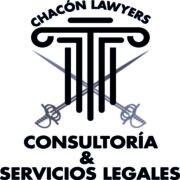Best Climate Change Law Lawyers in Bogota
Share your needs with us, get contacted by law firms.
Free. Takes 2 min.
List of the best lawyers in Bogota, Colombia
About Climate Change Law in Bogota, Colombia
Climate Change Law in Bogota, Colombia encompasses a wide range of legal frameworks aimed at mitigating and adapting to the effects of climate change. These laws are shaped by both international agreements, such as the Paris Agreement, and national policies established by the Colombian government. In Bogota, the capital city, there are also specific regulations and programs targeting greenhouse gas emissions, urban sustainability, air quality, and the protection of natural resources. These laws are designed to guide public and private sector activities to ensure environmental protection and compliance with Colombia's climate commitments.
Why You May Need a Lawyer
Seeking legal advice in Climate Change Law can be vital for many individuals and organizations in Bogota. Common situations where legal help may be needed include:
- Compliance with local, national, and international environmental regulations.
- Understanding obligations for businesses regarding carbon emissions and reporting.
- Assisting property developers or infrastructure projects in meeting environmental impact assessments and licensing requirements.
- Addressing penalties or disputes stemming from non-compliance with climate laws.
- Applying for government incentives or funding related to renewable energy and sustainable practices.
- Representing communities affected by environmental harm or challenging inadequate climate measures.
- Advising NGOs, startups, and individuals on legislative trends or opportunities related to climate change adaptation or mitigation.
Local Laws Overview
Bogota is subject to national regulations and specific local ordinances designed to combat climate change. The legal framework includes the following key aspects:
- National Climate Change Policy: Colombia’s National Climate Change Policy guides the implementation of climate actions across the country, including subnational jurisdictions like Bogota.
- Law 1931 of 2018: Establishes the general guidelines for climate change management. It emphasizes risk reduction, adaptation, and setting sectoral mitigation targets.
- Nationally Determined Contributions (NDC): Colombia regularly updates its NDCs, setting ambitious emissions reduction and adaptation goals, which directly affect regulatory obligations in Bogota.
- Bogota’s Climate Action Plan (Plan de Acción Climática): The city’s roadmap for reducing emissions, improving air quality, expanding green spaces, and encouraging sustainable urban mobility.
- Environmental Licensing: Developers and businesses must often secure environmental licenses before proceeding with activities that could affect local ecosystems or air quality.
- POT (Plan de Ordenamiento Territorial): Bogota’s urban regulatory plan integrates climate considerations related to land use and infrastructure.
- Air Quality Standards: Colombia and Bogota regulate pollutants through specific standards and regular monitoring, requiring compliance from industries and vehicle owners.
Frequently Asked Questions
What is Climate Change Law?
Climate Change Law refers to the body of legal rules and policies designed to address the causes and effects of climate change, including measures to reduce greenhouse gas emissions and promote adaptation to changing climate conditions.
Do I need an environmental license for my project in Bogota?
Most projects with potential environmental impacts require an environmental assessment and licensing process. A lawyer can help determine whether your project needs a permit and guide you through the application steps.
Which national laws affect climate change policy in Bogota?
Laws such as Law 1931 of 2018 establish climate change management guidelines. Additional legislation may apply to specific sectors such as transportation, construction, and energy.
How is Bogota addressing urban emissions?
Bogota’s Climate Action Plan includes targets for reducing emissions from transport, energy use, and waste, emphasizing public transit and non-motorized mobility improvements.
Are there incentives for renewable energy in Bogota?
Yes, Colombia offers tax breaks and incentives for renewable energy projects. Local authorities also support sustainable initiatives, but details vary by project and sector.
What are the penalties for non-compliance with climate regulations?
Penalties include fines, suspension of activities, and even closure of facilities. They depend on the severity and nature of the violation.
How can communities participate in climate policy decisions?
Citizens and organizations can participate through public consultations and environmental hearings. Lawyers can assist with representation and advocacy.
Can climate change laws impact property rights?
Yes, particularly if land is subject to new environmental restrictions, zoning changes, or conservation measures. Legal advice is valuable in handling these changes.
How do international agreements influence local climate laws?
International agreements like the Paris Agreement oblige Colombia to establish and update local regulations and targets, directly impacting Bogota’s climate policies.
Where can I find more information about climate obligations in my sector?
Sector-specific information is available from both governmental agencies and specialized legal professionals. A lawyer can help you access and interpret these resources effectively.
Additional Resources
If you are seeking further information or assistance on Climate Change Law in Bogota, consider reaching out to:
- Ministerio de Ambiente y Desarrollo Sostenible (Ministry of Environment and Sustainable Development): For official policies, updates, and consultations.
- Alcaldía de Bogotá (Bogota City Hall): For local regulations, climate plans, and community programs.
- Autoridad Nacional de Licencias Ambientales (ANLA): For environmental licensing processes.
- Legal clinics and university environmental law programs: For free or affordable legal guidance.
- Environmental NGOs: Many organizations offer legal insights and advocacy resources for individuals and communities affected by climate change.
Next Steps
If you believe you need legal assistance regarding Climate Change Law in Bogota, consider the following steps:
- Identify your specific needs or concerns related to climate regulations or policies.
- Gather all relevant documentation, such as business permits, project details, or correspondence with authorities.
- Consult with a lawyer specializing in environmental and climate change law. Local bar associations or referrals from trusted organizations can help you find a qualified professional.
- Prepare a list of questions and objectives for your consultation to make the most of your legal meeting.
- Review your responsibilities and options based on the legal advice provided.
- Stay informed about ongoing updates in climate change law and participate in community consultations when possible.
Professional legal guidance is fundamental for navigating the complexities of Climate Change Law in Bogota and ensuring both compliance and positive environmental outcomes.
Lawzana helps you find the best lawyers and law firms in Bogota through a curated and pre-screened list of qualified legal professionals. Our platform offers rankings and detailed profiles of attorneys and law firms, allowing you to compare based on practice areas, including Climate Change Law, experience, and client feedback.
Each profile includes a description of the firm's areas of practice, client reviews, team members and partners, year of establishment, spoken languages, office locations, contact information, social media presence, and any published articles or resources. Most firms on our platform speak English and are experienced in both local and international legal matters.
Get a quote from top-rated law firms in Bogota, Colombia — quickly, securely, and without unnecessary hassle.
Disclaimer:
The information provided on this page is for general informational purposes only and does not constitute legal advice. While we strive to ensure the accuracy and relevance of the content, legal information may change over time, and interpretations of the law can vary. You should always consult with a qualified legal professional for advice specific to your situation.
We disclaim all liability for actions taken or not taken based on the content of this page. If you believe any information is incorrect or outdated, please contact us, and we will review and update it where appropriate.













